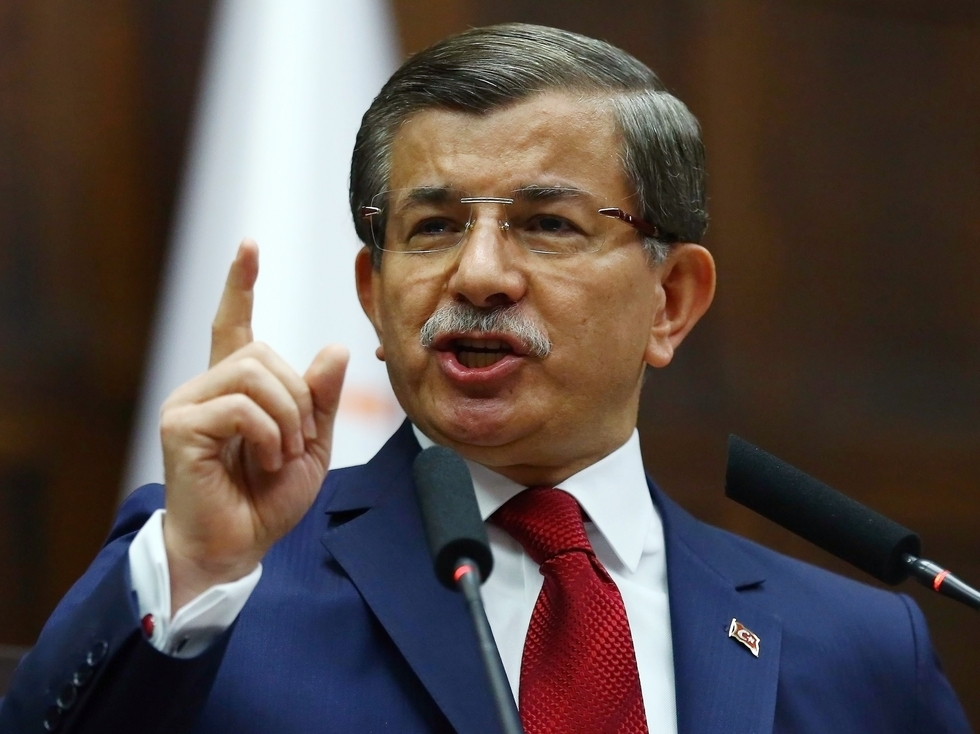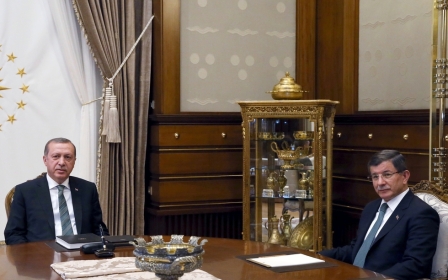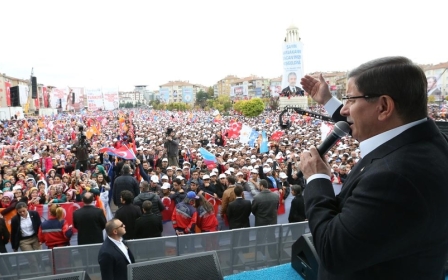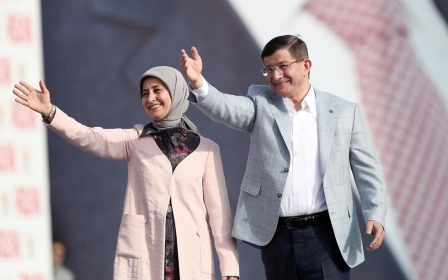Ahmet Davutoglu to quit as Turkish prime minister

Turkey's Prime Minister Ahmet Davutoglu on Thursday announced he was stepping down as ruling party chief and premier, in a shock resignation set to further boost President Recep Tayyip Erdogan's growing powers.
Divisions between Davutoglu and Erdogan that had been rumoured for months erupted into the open on Wednesday, with the two leaders holding crisis talks at the presidential palace that failed to resolve the conflict.
After a central executive committee of the ruling Justice and Development Party (AKP) on Thursday, Davutoglu said that the party would hold an extraordinary congress on 22 May and he would not contest the elections.
This means that the premier - who has headed the government since 2014 when Erdogan moved from the premiership to the presidency - will step aside from his twin jobs of AK party boss and prime minister.
According to the conventions of the AK party - co-founded by Erdogan to bring Islam into the mainstream of Turkey's secular politics - the party chairman and head of government are the same person.
"I don't think I will be a candidate in the next congress in the current circumstances," Davutoglu said.
He added that after "consultations with friends," including Erdogan, "I have decided that it will be better to change party leader... for the continuation of the AK Party's unity."
In an emotional farewell statement in which he took no questions and which saw some party officials openly weeping, Davutoglu gave a long description of the achievements since he became premier.
"There is no feeling of failure or regret in making this decision" to step aside, he said.
'Palace coup'
The possibility of tumult at the top of Turkish politics unnerved financial markets, losing almost four percent in value against the dollar on Wednesday and rallying only slightly on Thursday.
The appointment of a potentially more pliant prime minister would allow Erdogan to further consolidate his powers as he seeks to win backing for controversial constitutional changes to make Turkey a presidential system.
Since becoming president, Erdogan has sought to tighten his grip on the levers of power, leading critics to accuse him of authoritarianism and cracking down on press freedom.
"Palace Coup," said the headline of the opposition Cumhuriyet newspaper. "The summit meeting did not find a solution and Erdogan put a full stop to the conflict between them," it added.
Soner Cagaptay, director of the Turkish Research Program at the Washington Institute, said the move was the next stage in a "hollowing out" of Turkish institutions by Erdogan who already controls the army and parliament.
"It shows how much power has been massed in one person's hands," he told AFP, adding that Erdogan was now exercising more control than anyone in Turkey's modern democratic history.
Leading potential successors to Davutoglu include the president's longtime henchman Transport Minister Binali Yildirim, and the youthful Energy Minister Berat Albayrak, 38, who is married to the president's eldest daughter, Esra.
But press reports also suggested a less high-profile figure was possible, such as Deputy Prime Minister Yalcin Akdogan, Justice Minister Bekir Bozdag, or AKP deputy chairman Mehmet Ali Sahin.
"Whoever the new PM will be, it is clear that it will mean more power over the government by the president," said Ozgur Altug, chief economist at BGC partners in Istanbul.
'Not a word of criticism'
The shake-up comes at a critical time in modern Turkish history, with Ankara battling Kurdish militants in the southeast and in Iraq as well as Islamist militants on the Syrian border as well as hosting 2.7 million refugees from the Syria war.
Relations between Erdogan and Davutoglu had been seen by analysts as uneasy, but the speed with which their divisions burst into the open took many by surprise.
The premier championed a deal with the EU to stem the flow of refugees across the Aegean Sea - an accord in which the president has shown little interest.
On Wednesday, the EU Commission announced it was recommending giving Turks visa-free travel as part of the deal, one of Ankara's key demands.
Davutoglu had said there was no need for haste in Erdogan's drive to create a presidential system in Turkey, a pet project of the president that risked diminishing the premier's own powers.
A decision last week by the executive committee of the AK party to remove Davutoglu's right to appoint regional party officials was also seen by commentators as the most severe blow yet to the premier's authority.
But Davutoglu vowed to stay on as an AK party lawmaker and pledged to never voice "a single word" of criticism of Erdogan, saying their strong relationship would continue "until my least breath".
"No one heard or will ever hear a single word from my mouth, from my tongue or my mind against our president," he said.
New MEE newsletter: Jerusalem Dispatch
Sign up to get the latest insights and analysis on Israel-Palestine, alongside Turkey Unpacked and other MEE newsletters
Middle East Eye delivers independent and unrivalled coverage and analysis of the Middle East, North Africa and beyond. To learn more about republishing this content and the associated fees, please fill out this form. More about MEE can be found here.




